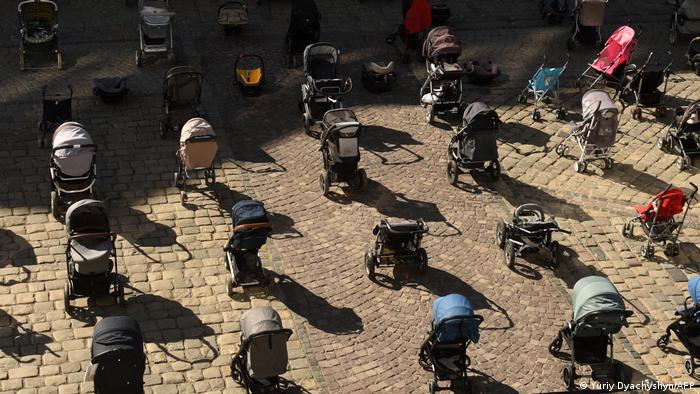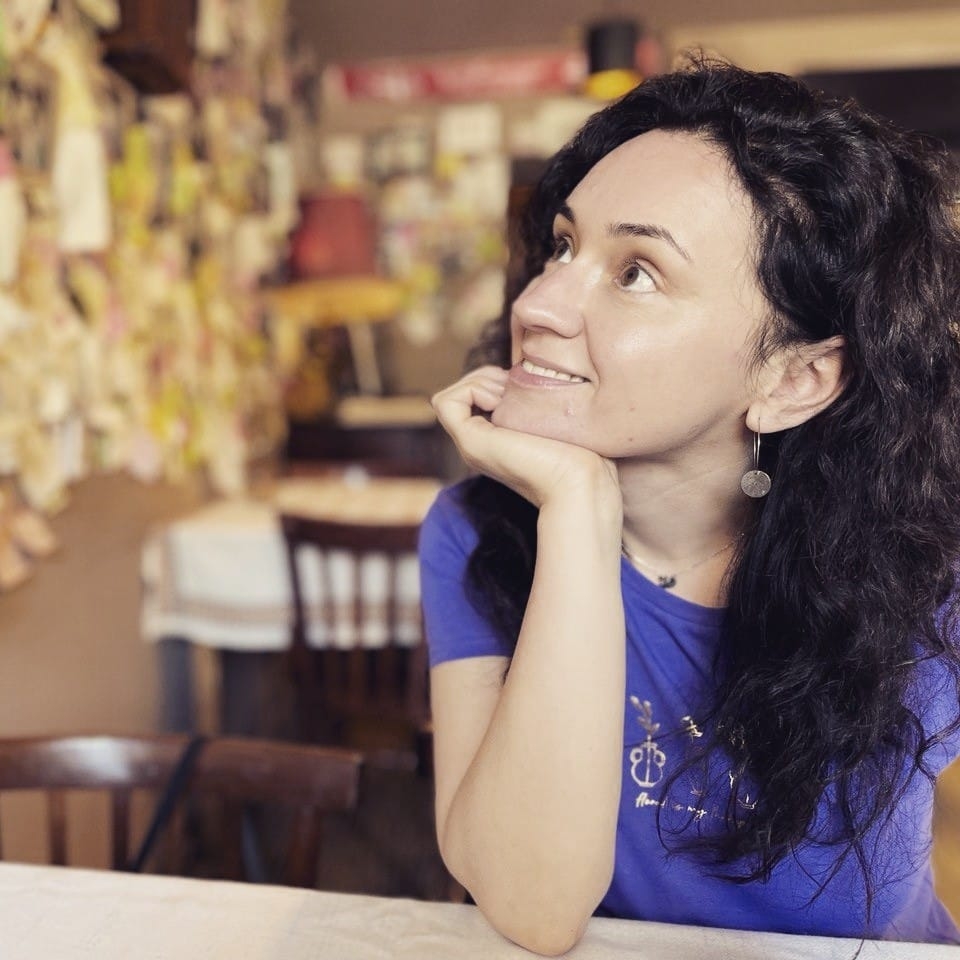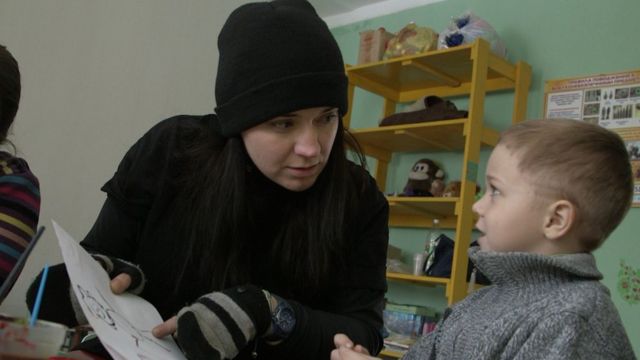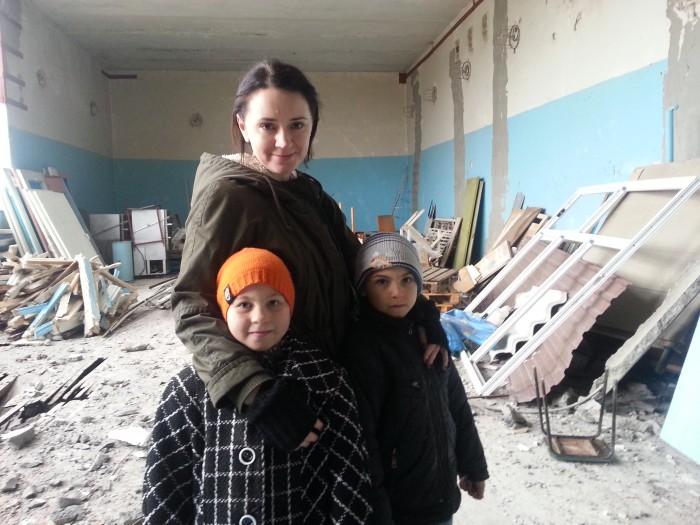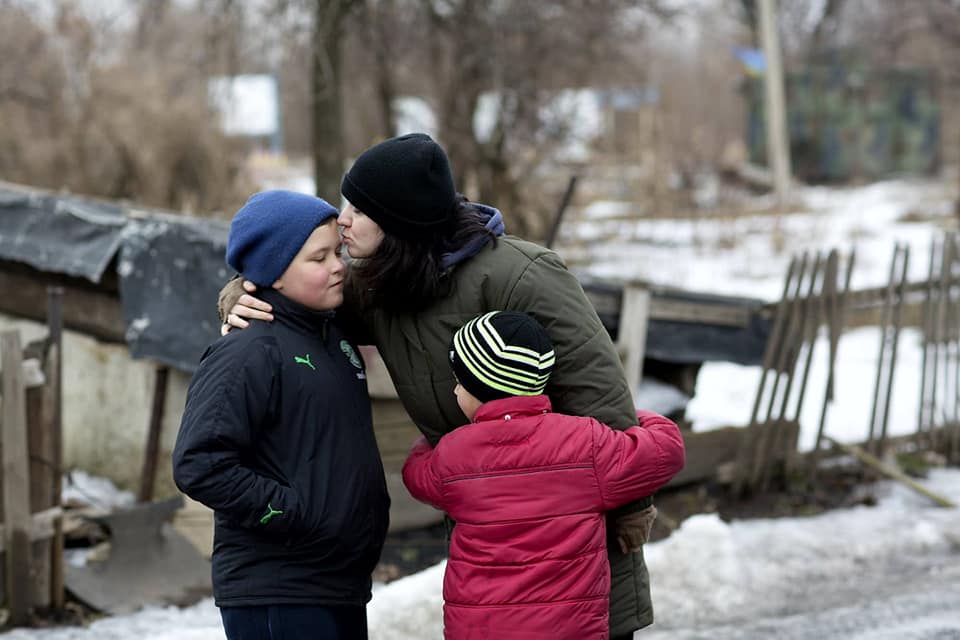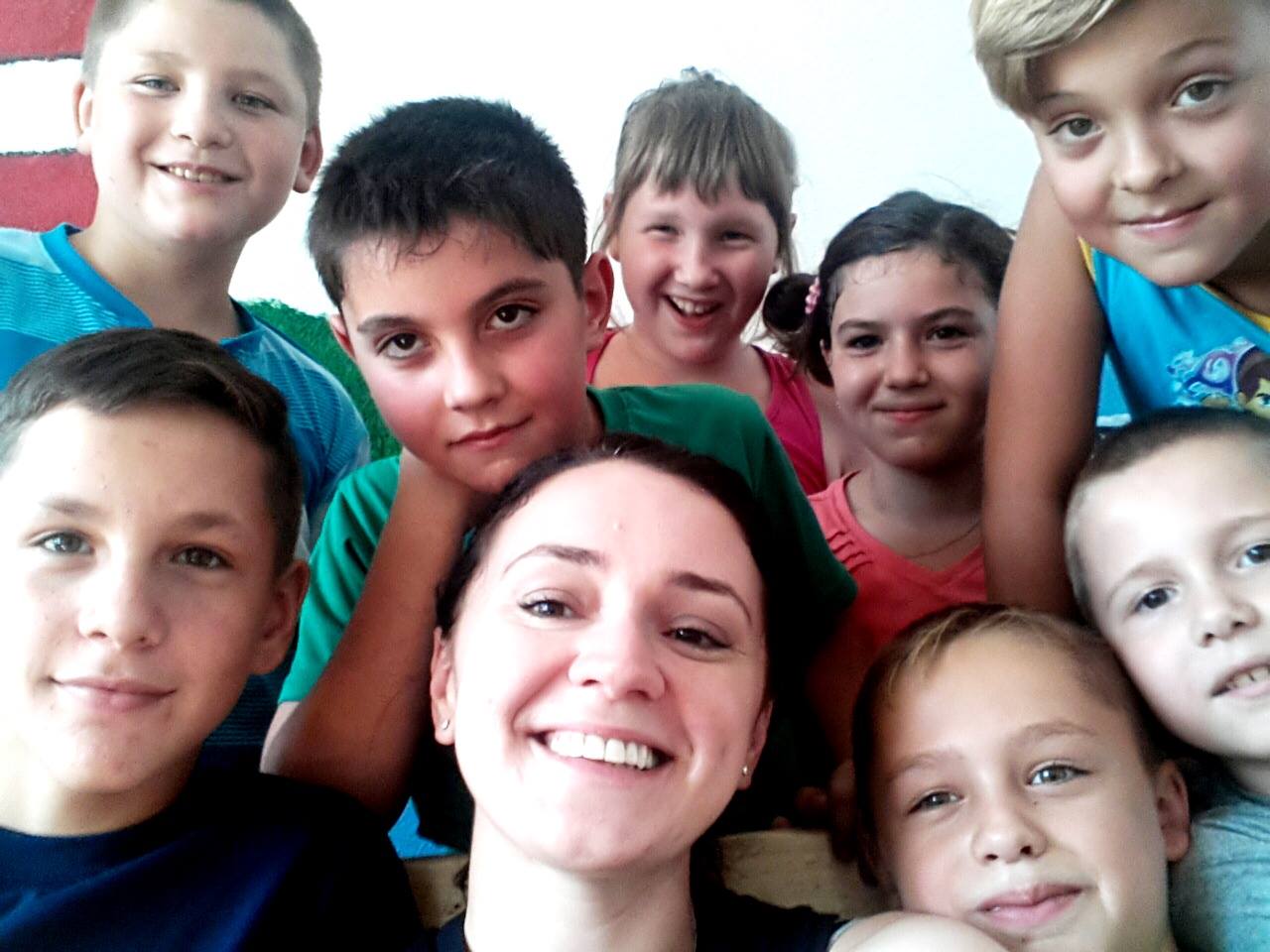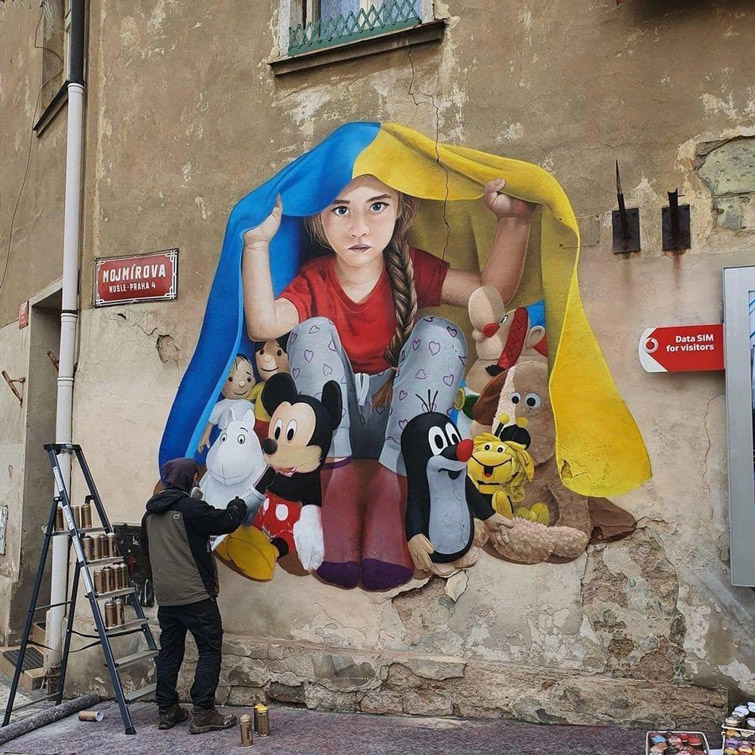
russia's full-scale invasion of Ukraine has been going on for more than three months, and the war in Donbas has been going on for another eight years. During this time, millions of children suffered at the hands of the russian occupiers. Today, Ukrainian children shudder from explosions and gunshots, wake up to the shrill sounds of sirens, and fall asleep in basements. Kindergartens, maternity homes, schools, and shelters, where families seek protection, are turning into targets. As of today, the Office of the Prosecutor General reports that at least 243 children have been killed and another 427 injured since russia began its full-scale invasion.
russian troops violate several essential children's rights defined in the UN Convention. The list of fundamental rights includes article 38, stating that a child has the right to protection during military conflicts. Unfortunately, during russia's invasion, children remain a particularly vulnerable population category. Since the beginning of the full-scale war, the Voices of Children charity organization has been creating monthly reports with recorded crimes against Ukrainian children and a detailed analysis of the violated articles of certain documents.
The main violations recorded by volunteers are:
- recruitment and use of children;
- murders and mutilations of children;
- rape and other forms of sexual violence against children;
- attacks on schools, hospitals, and civilian infrastructure;
- abduction of children;
- denial of access to humanitarian aid.
The volunteers say today we can talk about the russian military committing all these crimes against Ukrainian children.
The Voices of Children Foundation has been helping children affected by war since 2015. Volunteers and benefactors provide psychological and psychosocial support, assisting children in working through the consequences of armed conflict. During russia's full-scale invasion of Ukraine, the team is working non-stop to help the affected children and families from all over the country, providing urgent psychological help and assistance in the evacuation.
How to help a child survive the consequences of war? Find out in an interview with Olena Rozvadovska, co-founder and chairperson of the board of the Voices of Children foundation.
— How has the work of the Voices of Children charity fund changed since the beginning of russia's full-scale invasion of Ukraine?
— First of all, the work scale has changed. Working with children of war within the Donetsk and Luhansk regions, we could drive 50 km, and the children would be safe, but now it has become almost impossible to find a 100% safe place in Ukraine. The scale of destruction and evacuations is a thousand times greater, affecting everything. We must look for the maximum number of people, volunteers, and locations. The programs developed in January for this year turned out to be irrelevant, although they all related to children of war. It changes everything.
We started working in the west of Ukraine; before that, we worked only in the east. We narrowed down the work in the east to evacuation, food delivery, and humanitarian aid. Work at the west is the first psychological aid in shelters and places of compact living for families with children and assistance in arranging these people's lives. If we had never purchased mattresses before, now it has become relevant. We introduced an individual support program. We can buy houses and help equip them for a certain number of families we accompany from the east.
— You mentioned that you have been working with children affected by the war since 2015. Are war crimes different then and now?
— We worked differently. As journalists, we wrote about the violation of children's rights, and as documentarians, we shot video stories and cooperated with human rights organizations to help gather information. In 2014, we also observed the abduction of orphans and children from families, illegal armed formations of the so-called "Luhansk/Donetsk People's Republic" preventing the evacuation, blocking information, and turning off all channels that could notify a person of the opportunity to leave, and the use children for propaganda. We see all this now, only on a much larger scale, and this scale isn't just war crimes. They are genocide, like Bucha, Irpin, and other cities under occupation.
In addition, many towns and villages are still under occupation. What's happening is probably unknown, but what we hear from our acquaintances who leave there is absolute fear, kidnapping, torture of locals, and isolation from everything that happens in the peaceful territory. For example, people from Mariupol with whom we spoke didn't understand whether they should leave and accidentally called us. They thought there was a war all over Ukraine, that Kyiv had already been destroyed a long time ago and that it was better to stay put in Mariupol. Of course, a person isolated from everything, having only one channel of information, can believe everything.
— How do we correctly record war crimes against children?
— If people are currently in the occupied territory, they should consider their safety, not heroic deeds that can end in tragedy. A person under occupation cannot be relied upon to become a source of information. After all, sharing any information can cost lives.
- A person who has suffered a crime can testify about it when it is safe for them to talk about it.
- What human rights organizations do is primarily collect information from available sources. For example, the russians dropped a bomb on the school. The data is public; we record when it happened, collect photos from the location (if any), and interview people who are being treated and have injuries.
- Or for example, people have situations when the occupiers shoot their car during the evacuation; these are not isolated cases. These people are now scattered all over Ukraine and are the carriers of this information; they reveal it, and we can interview them.
From all the information collected from open and personal sources, we form reports we issue monthly. We have already published three of them in open access. We share this information with everyone. Similarly, other human rights organizations share it. For example, there is the 5 am initiative, which also collects this information. The search for this data means monitoring social media and websites. For a war crime to become the subject of consideration by the Hague Court, all this must pass through our state authorities. Suppose a woman became a victim of rape in Irpin. She must agree to testify; it must be her will. After all, for a war crime to become the subject of consideration by a tribunal, law enforcement must complete a specific procedure and record this interview accordingly. The Prosecutor General's Office does this.
"Any violation of the right to life, education, health, psychological well-being is a crime. The first right violated during the war is the right to life"
— What crimes are russian occupation forces committing against Ukrainian children?
— Any violation of the right to life, education, health, and psychological well-being is a crime. The first right violated during the war is the right to life. Also, it includes the right to health because no one has a psyche that will accept military actions relaxed. Also, the right to be in your family is violated: millions of children are separated from their fathers. Of course, it is also the right to education because most schools where hostilities occur are sometimes physically destroyed. The children certainly didn't take their tablets/laptops with them during the evacuation to continue their online education the next day as if nothing had happened, in the center of collective living, lying on the floor in the gym. Therefore, education for millions of children was also interrupted. Now, no family in Ukraine hasn't experienced the events of this war in one way or another; even if, for example, a child lives at home, his father may be at war.
— How does your organization help children traumatized by the war survive it?
— Our focus is on psychological help and support. Initially, we primarily provided it in centers of collective accommodation; now, we are reformatting it. After all, people differ in their places of residence. We worked where families settled—clinics, schools, kindergartens in Lviv, Chernivtsi, Ivano-Frankivsk, Berehovo, and many more locations in the Lviv region. Now we are working on creating our clubs, where we'll focus the work on allowing the children to relieve stress as much as possible and get a resource through various group activities. Psychologists, their assistants, educators, and animators will work there. We will aim individual work at a child with more significant signs of trauma or who is experiencing trauma more deeply.
— How would you advise parents to communicate with a child who witnessed a crime so as not to retraumatize them? For example, the child left under shelling or saw people being shot.
— Of course, everything is individual. But the fact is that the same mother can be traumatized and not be a resource for the child. If parents feel that they cease to be a support for their children, then it is customary to seek the advice of psychologists. We have a hotline that you can also contact.
For example, one mother has a teenager suffering from separation from their beloved because they moved to different parts of the country. Another has two children who cannot get along and miss their father because, in their family, he was the one who resolved conflicts.
First, it is necessary to understand that now the help and support of specialists can be significant.
Second, do not try to give the child the illusion that nothing is happening and that it is better not to talk about bad things, not to remember, and not to think about what happened. Sometimes, to let go of any traumatic events, it is better to discuss them. You don't need to create a parallel world for the child, where it seems they can quickly forget the experience.
Third, it is vital to be attentive and honest. If the child is 12+ years old, do not be ashamed to say that everyone is trying, but it is also difficult for you, and you sometimes cry, but the main thing is that you are together and will try to find an opportunity to survive this. Try to give the children, per their age, as frank answers as possible. If there are changes in the child's behavior or other alarming things, you should not think that it will pass, but seek support from a psychologist or other relevant specialist. There is no such psyche that is not affected by war; it is a traumatic event for anyone. But that doesn't mean it's for life. It is something that you can work out.
— In your opinion, how can this child's traumatic experience be minimized?
— Most people can survive traumatic events even without the support of specialists. The body has many resources to recover. For instance, we are trying to fill this summer with activities that provide children with new emotions and feelings: art therapy classes, hikes, and organized leisure time for IDPs and all children in Ukraine. Suppose we implement this system at the state level so that a child, even in the most remote village, has access to at least some set of activities, and entertainment, acquires new skills and competence, socializes, and feels contact. In that case, this significantly contributes to not going to a psychologist. Very often, this doesn't require exceptional support, but the child's inclusion in life is essential.
If the mother feels a problem—the child has nightmares, obsessive thoughts, changes in behavior, aggression, depressive episodes—then she needs to look for a specialist whom she can trust. Moreover, now many of these services are provided for free. It's important not to fall into these two extremes: everything will pass, nothing is needed, or here is my child, do something. Timeliness is the key; you need to keep a close eye on the child, and the sooner, the better.
— One of the directions of your work is emergency assistance to women and, children, refugees from all over Ukraine with necessities, settlement, and relocation. Which regions do you have the most inquiries from?
— Now, it is the Donetsk region, Luhansk region, and Kherson region. In March, many people were from Kyiv, Zhytomyr, and Kharkiv. Now it's the regions mentioned earlier. Many have nowhere to return and, first, need housing. I think there should be a state program; no charitable foundation can and should do it independently.
— Are you now somehow helping with housing for women and children who were evacuated from places of active hostilities?
— Currently, we are helping one sanatorium in Truskavets, renovating a building with 50 beds by repairing and furnishing it. Earlier, when people settled in shelters, there were, for example, no boilers or washing machines. With housing, we help a minimal number of families whom we accompany from the east; we have known them for a long time. That is, it is the assistance for collective forms of living.
— In your opinion, what kind of help do war-affected children need the most now?
— In my fund, I can distinguish the following categories: those children whom we can reach, to whom we are reachable, are certainly in a better situation, and those children who are currently living in the occupation or where hostilities are taking place and are very difficult to reach with any help; for me, it's in the worst situation. Those children cannot declare their needs and cannot realize them in any way. It is not that the children who are no longer there or who were not there are less traumatized; it is not about the strength of the trauma because it cannot be measured and contrasted with one another. In my opinion, there are children to whom we are reachable, and to whom we are unreachable, and we cannot help them in any way or warn them against certain events and situations. When they can, for example, be recruited to cooperate with the enemy, used for propaganda.
"In your community, you can create an environment where children will also feel at home, even though they have been resettled"
— If an average person wants to help a child who suffered during the war, how can they do it?
— Currently, many people are displaced in all communities, and at least in your community, you can create an environment where children will also feel at home, even though they are resettled. It is easiest to help those closest to you, who are the most accessible and understandable. You can share clothes, rent housing, not for all the money in the world, and help with transport. The most important thing is the atmosphere of acceptance and understanding that people are happy to see. If there are newly arrived evacuee children in your child's class, you can casually ask how they are and invite them over. Everyone is having a hard time right now, including those who receive and those who run away. Everyone's life has changed radically. War is such a big disaster that it often seems that only having a million can make a difference. Actually no. Most often, it is not the fact of money itself that changes everything but desire and action—direct, simple, precise action. Now it is about cultivating tolerance, respect, and resilience. A hefty burden falls on communities that receive people and must show understanding.
— On the other hand, these people may have loved ones fighting in the ranks of the Ukrainian forces, and the hosting families may also experience a tragedy when the front line didn't reach their home, but the war took away their husband or father. All people face difficult trials, so we should approach them because we are all human. No one will save us except ourselves—from the position of trying to help, not from the place of accusation or "I'm good, and you're needy, look what good I bring you," but from the banal understanding that we also don't know what may happen to us tomorrow. Maybe today, we are the ones who give help, and tomorrow we will be the ones who need it. As you act today, it will return to you tomorrow.
— During your time working with children who survived the war, what stories were most memorable?
— There are many stories of children's courage, indomitability, and victories. We have one ward boy still in the occupied city who wants to escape, but his parents disagree, and he is entirely dependent on them. We often had the stories when children were ready to leave because they do not like living where hostilities are taking place, where it is unclear what is going on, and where it is impossible to play, but the parents did not go for various reasons. These stories are the most painful because advising a child in a hopeless situation is very difficult.
We remember families who, despite losing everything they had, almost from the second day after resettlement, look for work and earn a living. We can see how children experience the war in the pictures. The most popular colors now are blue and yellow. They all draw something patriotic. The children also want us to win, for the war to end, and for them all to return home to meet their father.
— What should we not ask about a child who experienced the horrors of war so as not to traumatize them?
— You cannot ask everything in detail for the sake of your interest, to get some kind of thrill, like "my child just told me this…"
- You don't need to brag and chew on the details you ask out of curiosity to once again "gasp" how bad the russians are. You have to consider that this story is unnecessary for the child who experienced it; it doesn't change their condition in any way. You don't need to take the child out for detailed explanations and resolutions and return them during the period of trauma and suffering.
- If the child wants to cry and suffer, allow it. Suppose a boy is seven years old and crying, then you don't need to tell him: "Why are you crying? You are a soldier! What are you, not a man?!". These are forbidden phrases. We need to expand our mental awareness to the point that it is normal to cry, and it is also normal to suffer if you have lost your home. Even if a man wants to cry at 37, that is also normal.
- Finally, we understood that fireworks are very similar to the sounds of shelling and, I hope, they will not be in our country for a very long time. Even this New Year, I was in the square, and they were still thundering, even though the two regions have been at war for eight years. You cannot do any things that would create tension for the child.
- Don't take the child away from the mother if she wants to play with them. Even in our camps, children can come with their parents. There's no need to take the child away from the mother if the mother is a support and stability for the kid.
- Think about the privacy and protection of the child. For example, you may want to post a photo of a child from Volnovakha on Facebook, but first, you need to consider whether they have relatives there and whether it could harm them. Will the story about them harm the child if their father is in the Ukrainian Armed Forces and they are from Volnovakha? As a result, the relatives of this child may suffer because someone will know that their son-in-law is in the Ukrainian Armed Forces.
— How many children did you manage to help during the war?
— There are many different forms of help, and I don't even know how to measure these statistics. We delivered hundreds of purchased mattresses, food aid, and hygiene products to shelters where more than a hundred children and their mothers lived. Thousands of people have used help in one way or another.
If we talk about psychological support, it is precisely about 1000 children who went through group or individual classes in different locations.
If we talk about the evacuation, we filled the cars that carried it out, and on one day, it could be 50 women with children, and on another, it was 150, that is, hundreds of people in total. Regarding individual financial assistance, it is about 100 families.
We also have a program to support children with cerebral palsy on rehabilitation courses, which already has more than 50 families.
More than 100 people have already contacted the hotline for psychological help.
— How do you help children with disabilities during the war?
— Many children with disabilities need regular access to certain services. The families who planned to receive rehabilitation at the state's expense in February or March did not receive it because they were forced to leave their homes, move somewhere, or remain in the occupation, or this program from the state did not work. For instance, a child learning to walk had to be rehabilitated. Therefore, we also paid for rehabilitation for children with disabilities, which was unplanned because these families have nowhere to return or have lost the opportunity to arrange the necessary measures at their place of residence and do not have the chance to pay for rehabilitation on their own. That is why we have such a rehabilitation program in one of the clinics in the Lviv region, and we also have our art therapists who engage in art therapy exercises with children.
— How do you plan to expand the field of assistance to children who suffered as a result of russia's war against Ukraine in the future?
— We will expand our programs of psychological assistance and social rehabilitation through various programs (group and individual), through centers that we will open, and through mobile brigades, which we will launch where there is no possibility to deploy local points. We will also strengthen the hotline with more experts. Through psychoeducation, parents can be better for their children in stressful situations. Our strategic goal is to create a rehabilitation center focusing on war trauma for children who are struggling with traumatic events and have PTSD.




